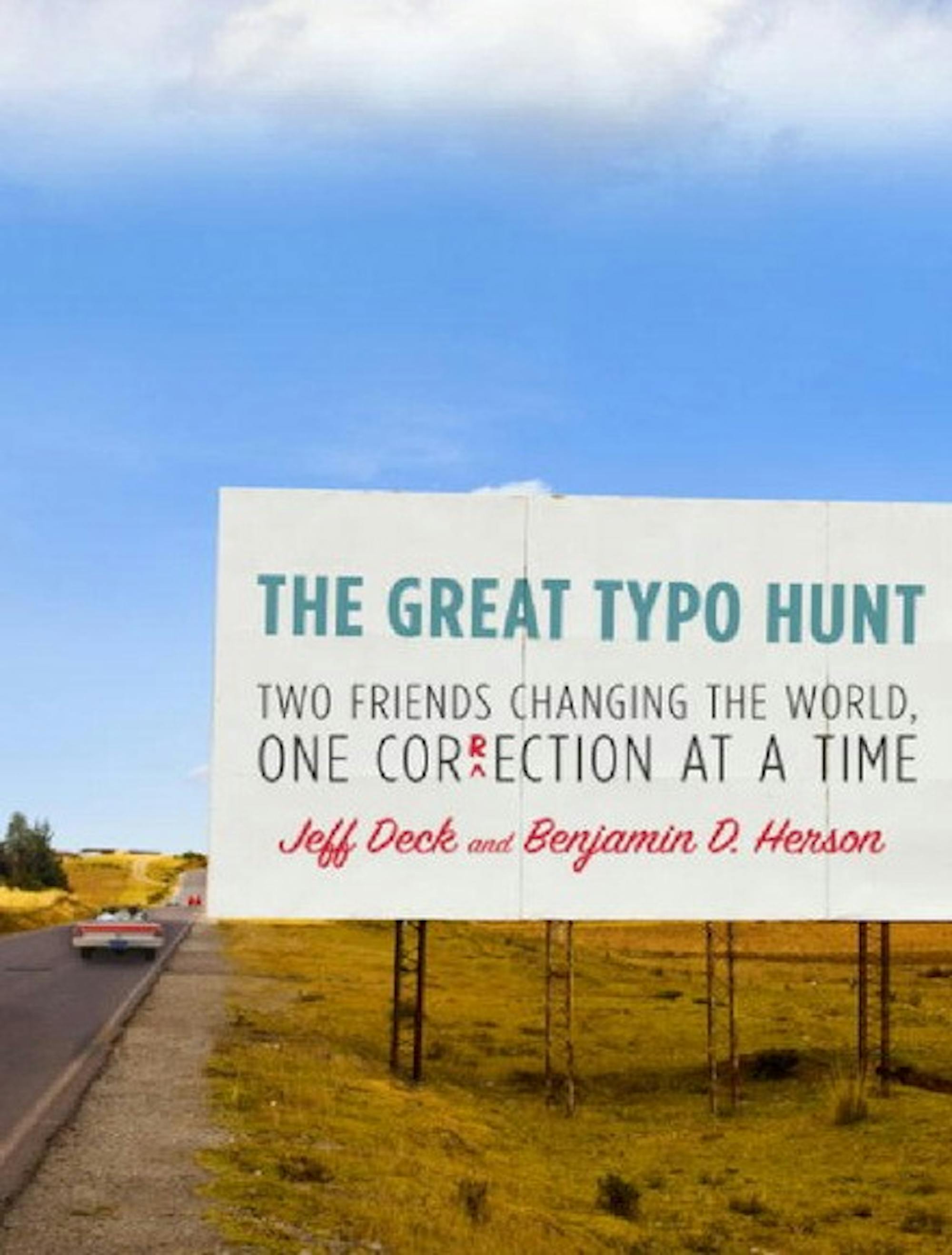The book opens in a location that is hopefully familiar to readers on this campus. Deck, back for his five-year reunion, is gazing "at the campus quad, the Green, and beyond it, the eternal phallus of Baker Tower, our axis mundi." This sentence sets the tone of the rest of the book: simultaneously descriptive, accessible and casual in its use of genitalia references to describe an otherwise solemn and innocuous landmark.
The main action of the book arises from Deck's feelings of inadequacy in comparison to his classmates, who all appear to be in the process of changing the world while Deck has been writing for a magazine about rocks and minerals creatively titled "Rocks & Minerals." When he stumbles across an incorrectly spelled "no trespassing" sign upon returning to Boston, Deck, a self-professed grammar stickler, is inspired. On the spot, he decides he will change the world by correcting typos. Armed with sharpies, Wite-Out, a sense of determination and a steely resolve, Deck sets off with Herson on a road trip across the country to boldly offer help to a section of the populace that has been ignored for too long: the spelling- and grammar-challenged.
While "The Great Typo Hunt" is, at its core, about two goofy guys on a slightly absurd mission, it also smoothly meanders into more serious topics. Deck earnestly and eloquently jumps between topics like racial tensions, class gaps and urban America versus rural America, all in the highly readable format of road trip anecdotes. The reader discovers along with Deck and Herson that typos are just a minor facet of the larger issue: communication.
Thus, the book follows the journey of two people who don't quite know what they want to do with their lives. For that reason alone, it holds widespread appeal to the college-student demographic. With the occasional Dartmouth reference, it also holds widespread appeal for Dartmouth students at least, it should. It doesn't demand to be read in one sitting, making it the perfect read for those who may not have time to read more than a couple pages a night.
The big question is whether the book holds appeal for the general population. Deck's grammatical explanations run the risk of repelling readers who are not interested in the finer points of punctuation, although these sections are sporadic enough to avoid hindering the book's progress.
Deck's writing is mockingly grandiose and entirely over-the-top, treating matters like comma usage as gravely important missions. By adapting this style, Deck presents himself as easily relatable. Despite his unusual penchant for correcting typos, he's a regular guy: he is an admitted introvert, he names his car, he has a girlfriend, he packs an obscene amount of Pop-Tarts as fuel for his journey and he even writes "epic novels" with his friends about ordinary guys fighting evil fraternity bros.
Admittedly, not all aspects of his personality could be considered normal, but his quirks make him and, by extension, his book more interesting. As you read, you find yourself wanting to befriend Deck. His wholehearted love of language ultimately leaps off the page and raises the reader's own appreciation of the intricacies of the English language.
Somewhere along the way, this faux-epic odyssey turns into the real thing. Although Deck's writing is self-mocking, he is also serious, and there is something oddly noble in Deck and Herson's earnest attempts to alert shop owners that their sign contains a typo. Sometimes, the ensuing events proceed as planned the shop owner or manager is slightly bewildered but allows them to correct the typo, photograph it and leave.
But sometimes, like all who set out to change the world, Deck and Herson face adversity. This adversity arrives in the form of both personal challenges and obstacles to their mission (discovering the difficulty living off of Pop-Tarts, for example). They are also continuously on the move from Boston to Texas to California and everything in between. In the course of their journey, they doubt themselves, they bicker with each other and they have amusing mental monologues. In short, their humanity makes them easy to sympathize with. You can't help but feel oddly proud of them, simply by reading their account of the journey.




